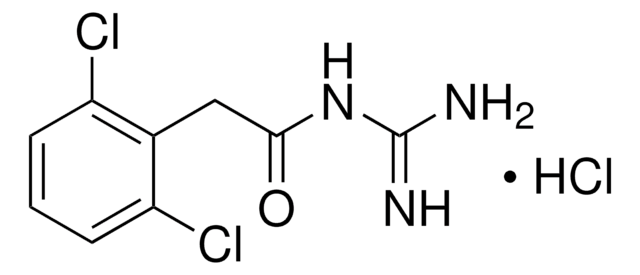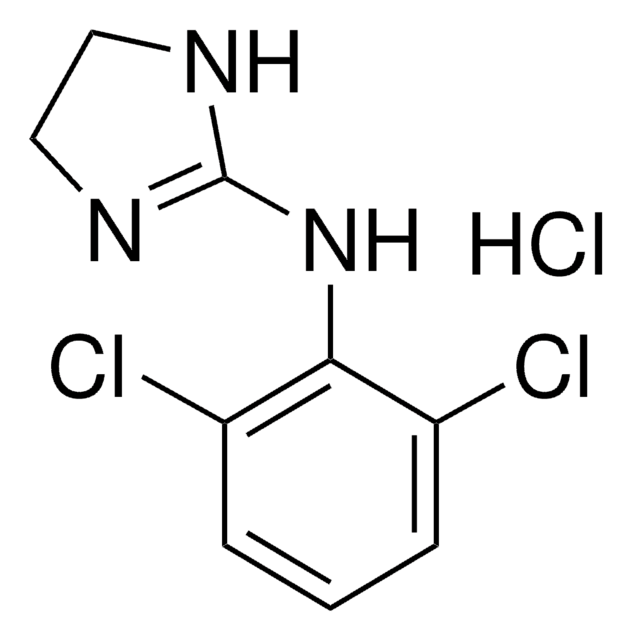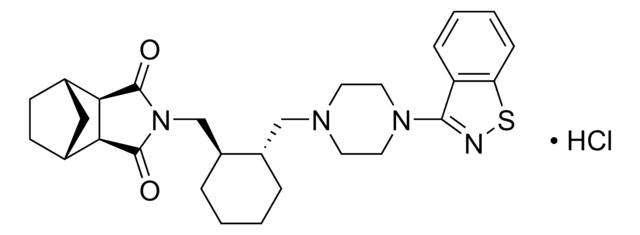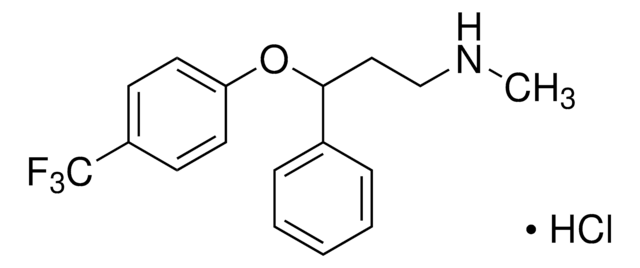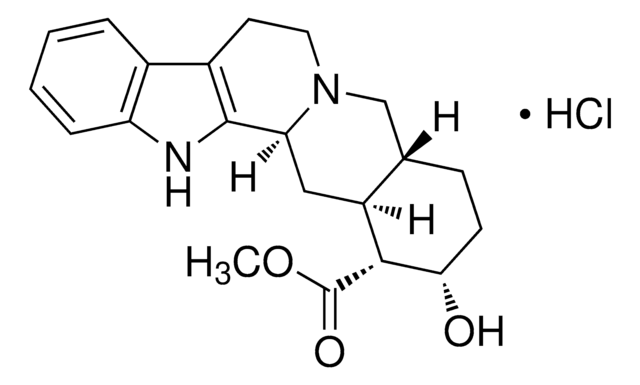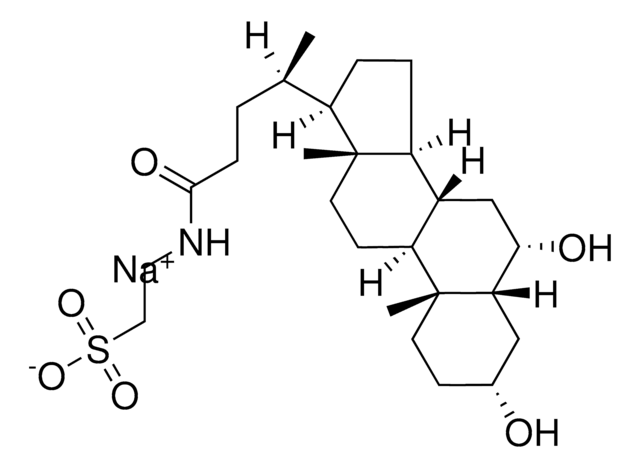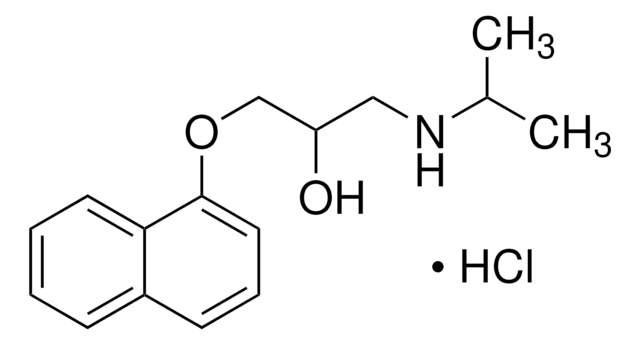추천 제품
Quality Level
분석
≥98% (HPLC)
색상
white
solubility
H2O: soluble 12 mg/mL at 60 °C
주관자
Promius
SMILES string
Cl.NC(=N)NC(=O)Cc1c(Cl)cccc1Cl
InChI
1S/C9H9Cl2N3O.ClH/c10-6-2-1-3-7(11)5(6)4-8(15)14-9(12)13;/h1-3H,4H2,(H4,12,13,14,15);1H
InChI key
DGFYECXYGUIODH-UHFFFAOYSA-N
유전자 정보
human ... ADRA2A(150) , ADRA2B(151) , ADRA2C(152)
유사한 제품을 찾으십니까? 방문 제품 비교 안내
애플리케이션
Guanfacine hydrochloride has been used as an α2A adrenoceptor agonist to test its protective effect on hypobaric hypoxia (HH) and in rat brain to measure blood oxygenation level dependent (BOLD) response.
생화학적/생리학적 작용
Guanfacine stimulates the brain postsynaptic α2 adrenergic receptor (AR) and mediates the prefrontal cortical (PFC) neuronal regulation and strengthens their network. Guanfacine improves the density of neuronal dendrites and is useful in treating neuropsychiatric disorders. It modulates the synaptic and cytoskeletal proteins expression in prefrontal cortical (PFC) neurons and may improve hypobaric hypoxia (HH) induced PFC dysfunctions. Guanfacine enhances cognitive function and is recommended for attention deficit hyperactivity disorder (ADHD) therapy.
α-2 noradrenergic receptor agonist.
특징 및 장점
This compound was developed by Promius. To browse the list of other pharma-developed compounds and Approved Drugs/Drug Candidates, click here.
Storage Class Code
11 - Combustible Solids
WGK
WGK 3
Flash Point (°F)
Not applicable
Flash Point (°C)
Not applicable
개인 보호 장비
Eyeshields, Gloves, type N95 (US)
시험 성적서(COA)
제품의 로트/배치 번호를 입력하여 시험 성적서(COA)을 검색하십시오. 로트 및 배치 번호는 제품 라벨에 있는 ‘로트’ 또는 ‘배치’라는 용어 뒤에서 찾을 수 있습니다.
이미 열람한 고객
Guanfacine produces differential effects in frontal cortex compared with striatum: assessed by phMRI BOLD contrast
Easton N, et al.
Psychopharmacology, 189(3), 369-385 (2006)
Sophie Duong et al.
Expert opinion on drug metabolism & toxicology, 8(5), 543-552 (2012-03-15)
Pharmacotherapy is frequently used to treat symptoms of attention-deficit/hyperactivity disorder (ADHD), the most common neurobehavioral disorder of childhood. The typically prescribed agents for ADHD have varying durations of effect and degrees of efficacy. The broad range of pharmacological treatments available
Jean Lachaine et al.
Postgraduate medicine, 124(3), 139-148 (2012-06-14)
To understand attention-deficit/hyperactivity disorder (ADHD) treatment patterns and estimate adherence and persistence in Quebec, Canada. This cross-sectional, retrospective prescription claims analysis used a random sample of 15 838 patients with ADHD from a Quebec database (Régie de l'assurance maladie du
Timothy E Wilens et al.
Journal of the American Academy of Child and Adolescent Psychiatry, 51(1), 74-85 (2011-12-20)
To examine efficacy, tolerability, and safety of guanfacine extended release (GXR; ≤4 mg/d) adjunctive to a long-acting psychostimulant for the treatment of attention-deficit/hyperactivity disorder (ADHD) in children and adolescents 6 to 17 years of age with suboptimal, but partial, response
Yuanyuan Li et al.
Bioanalysis, 4(12), 1445-1456 (2012-07-17)
Direct analysis of dried blood spot (DBS) samples was investigated using a prototype semi-automated robotic device that allows the direct elution of sample spots from a DBS paper card to an online SPE cartridge. The eluted SPE samples were analyzed
자사의 과학자팀은 생명 과학, 재료 과학, 화학 합성, 크로마토그래피, 분석 및 기타 많은 영역을 포함한 모든 과학 분야에 경험이 있습니다..
고객지원팀으로 연락바랍니다.